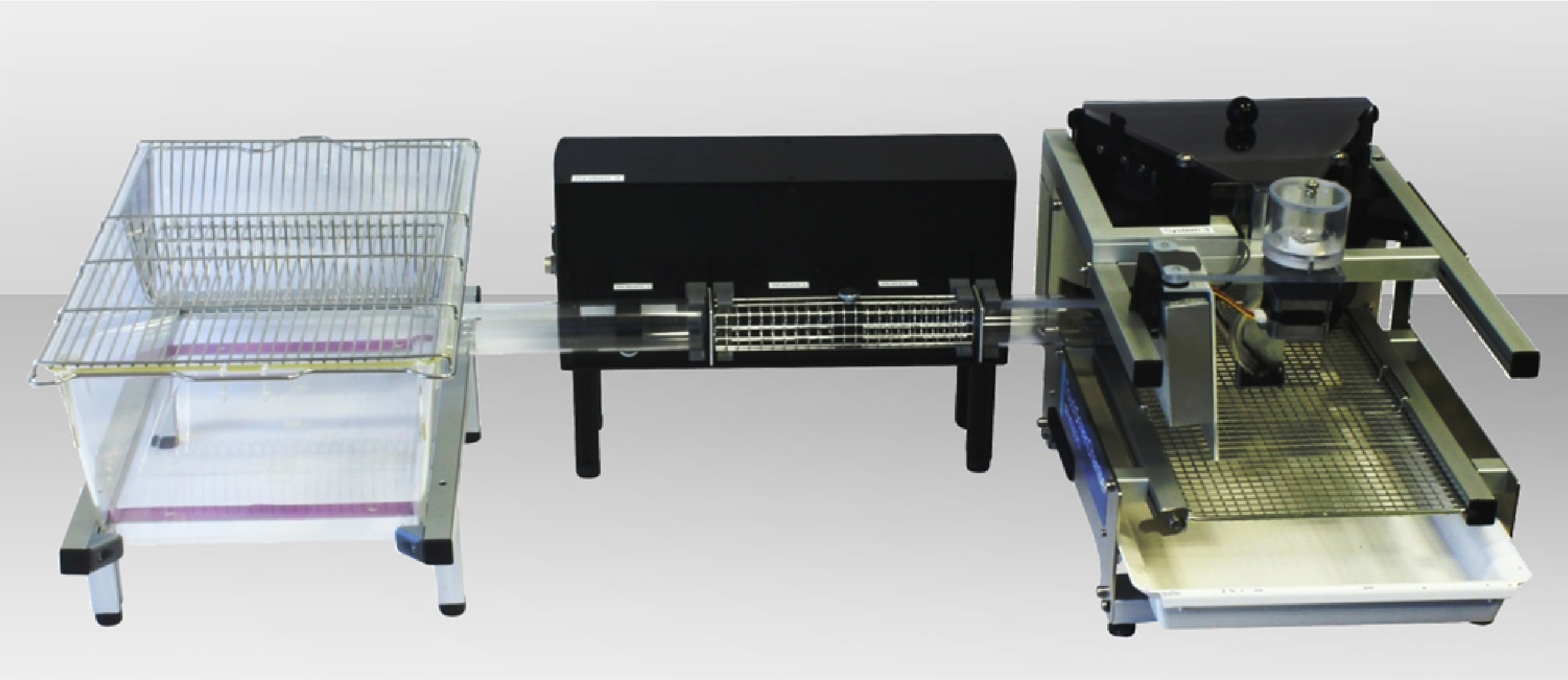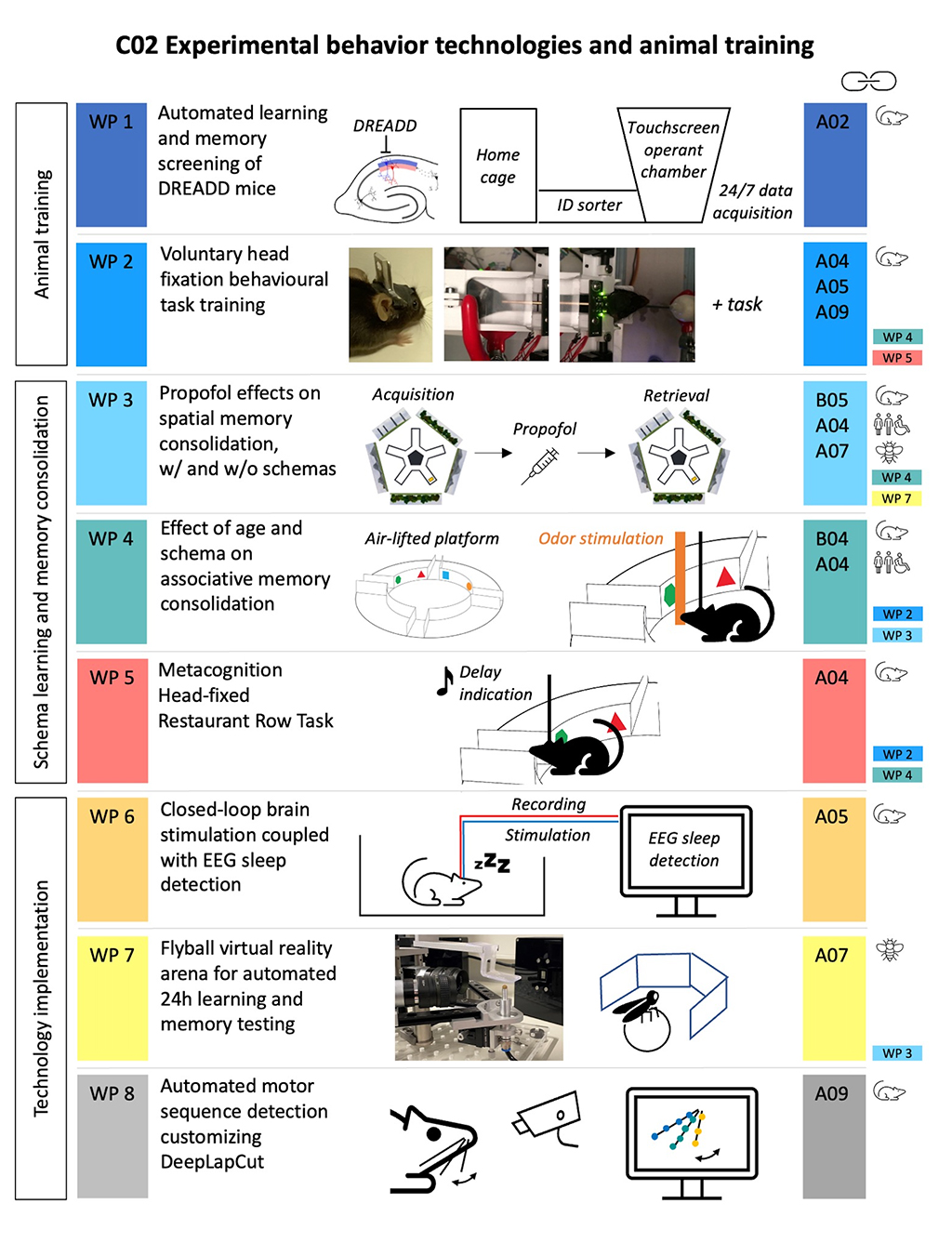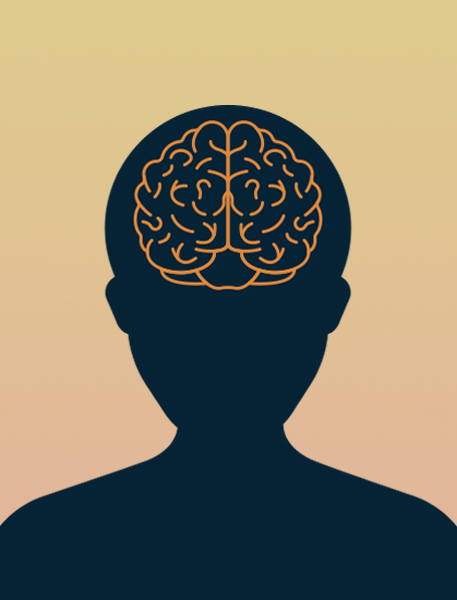C02
Experimental behavior technologies and animal training

The Experimental Behavior Technologies and Animal Training service project provides the mechanisms and resources for producing state-of-the-art behavioral systems, which are developed in close conjunction with individual CRC projects. The systems are designed to minimize experimenter interference and increase efficiency in freely moving as well as head-fixed animals and include virtual reality as well as operant- and maze- based systems. A major focus of the C02 project in this funding period is the facilitation of cross-species research approaches within the CRC to target closely related research questions synergistically. To this end C02 will provide tasks for mice and drosophila, that are comparable to the human tasks used within the CRC to study memory consolidation across development in children and spatial memory consolidation following propofol anesthesia.
Image Experimental set-up. Courtesy of York Winter
Graphical Abstract

Graphical abstract: Work packages (WPs) of the C02 project. WPs 1–2 focus on the implementation of automated rodent
training. WPs 3−5 will provide behavioral setups to investigate the role of schema learning in memory consolidation in a
cross-species approach. WPs 6–8 focus on the implementation of state-of-the art technology for different CRC members.
On the right-hand side, the specific CRC projects for which these services are provided, as well as links between different
WPs and the species involved are depicted.
Team
-

Prof Dr York Winter
Prof Dr York Winter
Head Winter Lab
-

Prof Dr Klaus Gramann
Technische Universität Berlin
B04, B05, C02 Associate PI
-

Dr Alexej Schatz
Humboldt-Universität zu Berlin
C02 Postdoc
-

Dr Katharina Stumpenhorst
Humboldt-Universität zu Berlin
C02 Associate Postdoc
-

Dr Francesco Bagorda
Humboldt-Universität zu Berlin
C02 Associate Technical Assistant
-

Katja Frei
Humboldt-Universität zu Berlin
C02 Associate Technical Assistant
Publications
KineWheel–DeepLabCut Automated Paw Annotation Using Alternating Stroboscopic UV and White Light Illumination
Björn Albrecht, Alexej Schatz, Katja Frei and York Winter
eNeuro. 11(8):ENEURO.0304-23.2024 (2024)
LabNet hardware control software for the Raspberry Pi
Alexej Schatz, York Winter
Elife. 11:e77973 (2022)
Cognitive training of mice attenuates age-related decline in associative learning and behavioral flexibility
Dalia Attalla, Alexej Schatz, Katharina Stumpenhorst, York Winter
Front Behav Neurosci. 18:1326501 (2024)
The stop signal task for measuring behavioral inhibition in mice with increased sensitivity and high-throughput operation
Alican Caglayan, Katharina Stumpenhorst and York Winter
Front Behav Neurosci 15:777767 (2021)
Learning set formation and reversal learning in mice during high-throughput home-cage-based olfactory discrimination
Alican Caglayan, Katherina Stumpenhorst, York Winter
Front Behav Neurosci. 15:684936 (2021)
A CRISPR-Cas9–engineered mouse model for GPI-anchor deficiency mirrors human phenotypes and exhibits hippocampal synaptic dysfunctions
Miguel Rodríguez de los Santos, Marion Rivalan, Friederike S. David, Alexander Stumpf, Julika Pitsch, Despina Tsortouktzidis, Laura Moreno Velasquez, Anne Voigt, Karl Schilling, Daniele Mattei, Melissa Long, Guido Vogt, Alexej Knaus, Björn Fischer-Zirnsak, Lars Wittler, Bernd Timmermann, Peter N. Robinson, Denise Horn, Stefan Mundlos, Uwe Kornak, Albert J. Becker, Dietmar Schmitz, York Winter and Peter M. Krawitz
Proc Natl Acad Sci USA. 118(2):e2014481118 (2021)

